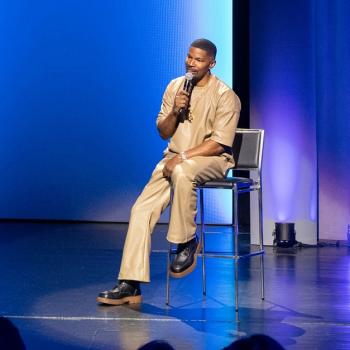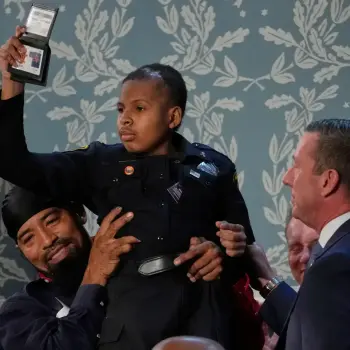Editor's Note: This essay has been previously published in Atheist Voices of Minnesota (Freethought House, 2012), edited by Bill Lehto, and is reprinted with permission.
"I'm not gonna be the head of the house anymore," I confidently told my wife. Jennifer picked up the remote control, pointed it at the television, and pushed the mute button. She turned from her sitting position and looked over her shoulder. I stood there in between the bedroom and the living room.
Wondering if everything was okay, she crinkled her nose and asked, "What do you mean?"
I thought my words were clear. "I meant just that. I'm not gonna be the head of the house anymore." Granted, it was a succinct statement, but it carried much import. Though I had the courtesy to wait until my wife's TV show was taking a commercial break, I probably should have waited until the show was over to announce my unilateral decision of a complete refiguring of the family.
"Well, who's going to be the head of the house, then?" she asked.
I shrugged my shoulders. "I don't know. Don't really care. I just know that it won't be me anymore."
"Okay," Jennifer said. There really wasn't much else she could say. Since I was—up until that moment—her head, then my decision was final. Still, it was an unusual decision. We were both devout Jehovah's Witnesses, and the dictates of our faith clearly stated that in all heterosexual marriages (and the religion forbade any other kind), the husband was in charge. Wives were to respect their mate's position of headship, a principle reinforced to us at our wedding, which my grandfather officiated. During the ceremony, he defined the word husband as the person who holds, or "bands," the house together and thus owns all that is in it. Nodding in the direction of my bride, he noted that she would henceforth be owned by her new spouse. The vows, dictated verbatim by the Jehovah's Witnesses' governing organization, the Watchtower Society, state that brides are "to love and to cherish and deeply respect" their husbands "as set forth in the Holy Scriptures." ("Christian Weddings That Bring Joy," The Watchtower, April 15, 1984, page 14)
The commercials having concluded, my wife turned back toward the television. I returned to our bedroom and attempted to continue reading.
I had been reading for most of that last hour while my wife watched TV. I was reading yet another article in the Witnesses' magazine, The Watchtower, concerning headship and Christian family life. But I couldn't read anymore. Not about that, anyway. So I picked up a book on string theory, and attempted to wrap my mind around something less frustrating.
Male-privileged headship hadn't made much sense to me for years. As a man, I was the head of all women in the religion regardless of their age or experience in the faith. When I was a teenager and my father went out of town on business trips, it was left to me to say the prayer before meals and to conduct a Bible study with my mother and sister. I felt odd coming into the dining room, leaving board games and toy cars behind in my bedroom, sitting at the table and suddenly assuming the role of a mature spiritual man.
I accompanied my grandmother one afternoon as she paid her weekly visit on a trio of children. At the request of their mother, she studied the Bible with them. On the day I joined them, my grandmother was compelled to don a head-covering. As she tied the scarf around her head and tucked in her graying hair along the sides, she explained to the children that since she was about to lead them in a Bible study, she was required to show submissive respect to the male in the room—her grandson. Trying to dispel their smirks and giggles, she raised her eyebrows and puckered her lips as she explained the reasons why women, especially in religious matters, were subject to men.
But I wasn't a man. I was only twelve. The children looked at me, snickering, wondering how I could be the head of my own grandmother, a woman nearing 60 years of age who had been a member of the religion for most of her life and had been studying the Bible for decades longer than I had been alive.
My presence during the Bible study that day was awkward. But at other times, my presence was positively nerve-wracking.
For most of the year, I only participated in the door-to-door proselytizing on Saturdays and Sundays. But during the summer, when school was in recess, my little sister and I joined our mother in preaching midweek. In the morning, we met with other Witnesses at the Kingdom Hall, which is what they call their churches. We held a brief meeting to share a scripture, discuss the latest Watchtower periodicals, divide into car groups, and pray.




